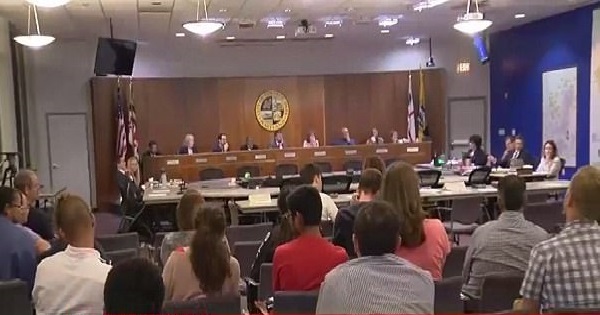A homeless U.S. citizen can not vote but an illegal immigrant can vote.
College Park, Md became the largest U.S. city to allow noncitizens to cast ballots in municipal elections after a divided City Council vote. On both sides tension flared, with some in the audience booing speakers. “I came here to have a civil discourse, and I was called a Nazi,” said Rick Hudson, who opposed the measure.
The decision to allow undocumented immigrants, student visa holders and residents with green cards to vote comes eight months into a crackdown on illegal immigration by President Trump and one week after his administration said it will wind down a deportation-relief program for young immigrants brought here as children.
Council members and activists who supported the measure said it would send a message that College Park is a welcoming community for all residents, regardless of legal status.
“Even if it weren’t for the national context, it would be important for us to vote in support of noncitizens voting,” said former mayor Andrew Fellows, one of 30 people to speak during the four-hour meeting. “We should experiment in inclusivity wherever we possibly can.”
On both sides tension flared, with some in the audience booing speakers and the mayor at one point declaring that there was not a competition to see who could clap the loudest.
“I came here to have a civil discourse, and I was called a Nazi,” said Rick Hudson, who opposed allowing noncitizens to vote and said the slur was directed at him while he waited in line to speak. “People are afraid to speak one way or another on this issue.”
Emily Weant, who has lived in College Park since 2013, said allowing noncitizens to vote is “a slap in the face to citizens, especially Latino immigrants who have earned their citizenship.”
The measure allowing noncitizens to vote then passed 4 to 3.
About 20 percent of the city’s 32,275 residents are ¬foreign-born, according to data from the U.S. Census Bureau. The University of Maryland campus, with more than 27,000 undergraduates, has about 3,600 international students.
Several other cities in Maryland already allow noncitizens to vote locally. Chicago and San Francisco also offer limited noncitizen voting. The trend runs counter to the anti-immigration sentiment in many areas of the country.

